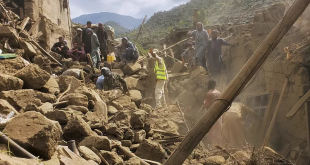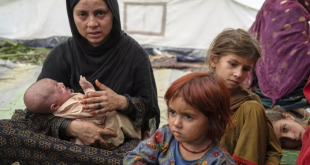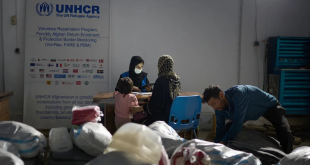KABUL – Tensions between Pakistan and Afghanistan’s Taliban rulers have deepened following Pakistani air strikes inside Afghan territory on December 24. While Islamabad claimed the strikes targeted militant hideouts, Taliban officials reported that the attacks killed around 50 civilians, primarily ethnic Pashtun refugees from Pakistan’s Waziristan region, in Barmal district of Afghanistan’s southeastern Paktika province. The Afghan Defense Ministry strongly condemned the strikes as a “despicable act” and vowed retaliation, further souring relations between the neighboring countries.
At the center of the dispute is the Tehrik-e-Taliban Pakistan (TTP), a banned Islamist militant group waging a violent insurgency against the Pakistani government. Pakistan accuses the Afghan Taliban of providing sanctuary to the TTP, which Islamabad says has launched frequent cross-border attacks, including the recent killing of 16 Pakistani soldiers in South Waziristan on December 21. Since the Taliban regained control of Afghanistan in 2021, Pakistan has demanded they expel the TTP or pressure it to surrender. However, the Taliban have resisted these demands, citing historical and ideological ties with the TTP, as both groups share ethnic Pashtun roots and a common ultra-conservative Islamic ideology.
Following the Taliban’s takeover of Afghanistan, they facilitated peace talks between Islamabad and the TTP, which resulted in a temporary truce. However, the agreement collapsed in November 2022, leading to an escalation in TTP violence and retaliatory actions by Pakistan. The impasse has left both sides locked in a cycle of escalating tensions, with no clear resolution in sight. Analysts suggest that the Taliban view the TTP’s presence in Afghanistan as a complex issue intertwined with anti-Pakistan sentiment among Afghans and their own desire to assert independence from Islamabad’s influence.
Pakistan’s response has included military strikes, border closures, trade restrictions, and the expulsion of nearly one million undocumented Afghan nationals since October 2023. Despite these measures, experts argue that Islamabad’s tactics have failed to pressure the Taliban into abandoning the TTP. Instead, the Taliban appear determined to maintain their stance, with some experts suggesting they may even push for concessions, such as formal recognition of TTP-controlled areas in Pakistan—a demand unlikely to be accepted by Islamabad.
The escalating conflict has drawn criticism from residents in Pakistan’s northwestern Khyber Pakhtunkhwa Province, who have staged protests against the resurgence of TTP violence in their region. Meanwhile, the situation remains at an impasse, with both sides unwilling to compromise, leaving little hope for a resolution to the crisis in the near future.
 Afghanistan Times
Afghanistan Times




